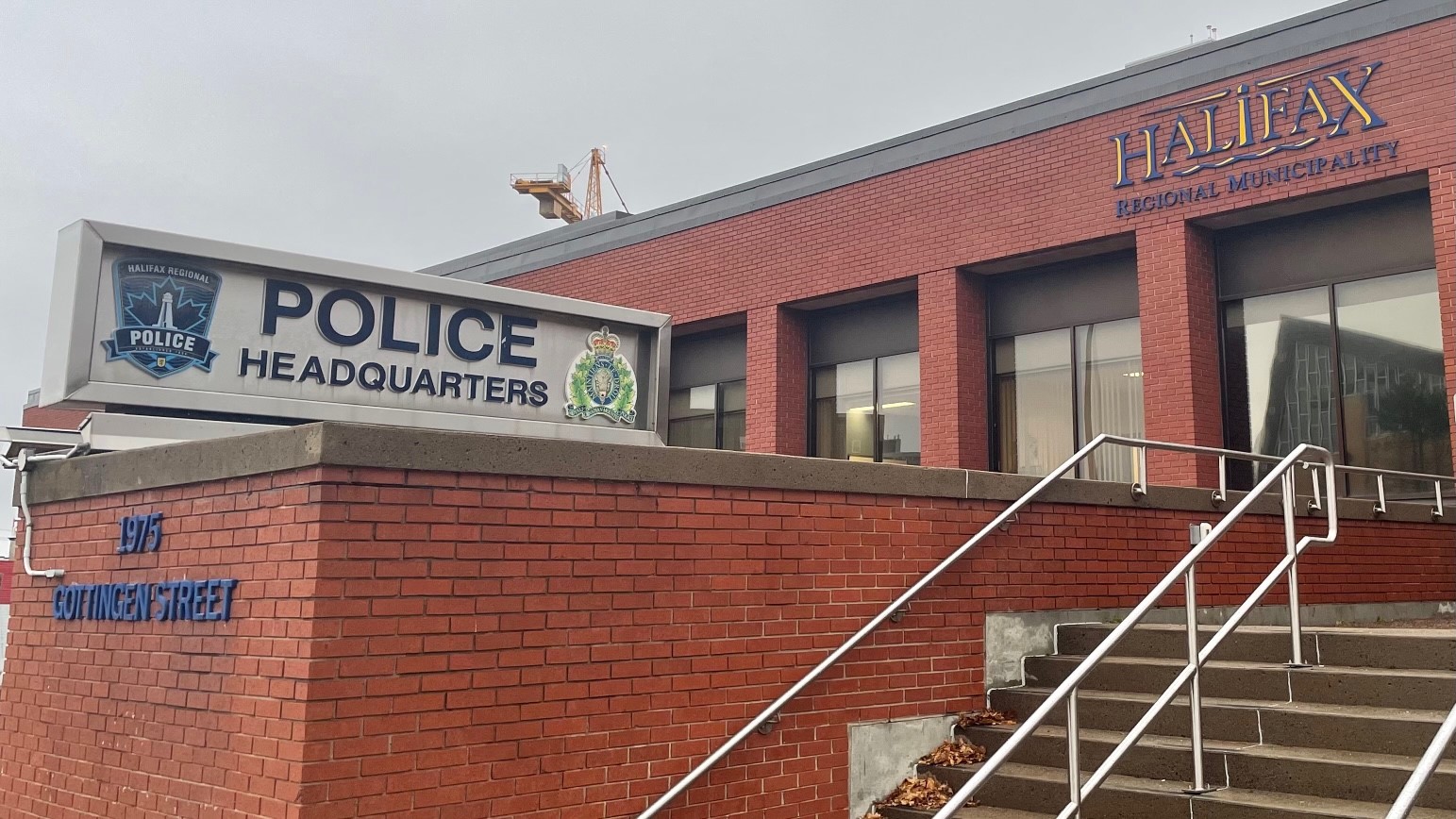Nova Scotia tightens ban on street checks
Province refines police guidelines designed to end racial profiling

caption
Halifax Regional Police and RCMP headquarters at 1975 Gottingen Street on Dec. 2, 2021.Nova Scotia is changing the wording in its directive banning street checks, replacing “suspicious activity” with “reasonable suspicion.”
It’s a key amendment to the directive for police to better define when or how to stop people.
“The province has strengthened the existing ban on street checks to provide clearer direction to police and ensure no Nova Scotian is subjected to the practice,” the province said in a news release Thursday.
Justice Minister Brad Johns said this will “better protect racialized communities.” Related stories
There were calls to end street checks after a 2017 CBC story revealed that Black people in Nova Scotia were three times more likely to be stopped on the street in comparison to white people.
Later, Scot Wortley was commissioned by the Nova Scotia Human Rights Commission to investigate.
The 2019 Wortley report uncovered that the figure was closer to double that originally found; “Black people have been five to six times more likely to appear in street check statistics than their representation in the general population would predict.”
A temporary moratorium on street checks was introduced. Three weeks after the report was published, Mark Furey, the justice minister at the time, banned street checks in Nova Scotia.
Angela Simmonds, Liberal MLA for Preston and a lawyer, has been outspoken about the issue. She was pulled over by RCMP while driving with her husband this summer. She said the updated language is an important change.
“There’s a legal threshold because reasonable suspicion is actually in the Criminal Code,” Simmonds said in an interview.
“Suspicious activity is more of a grey area … it’s what the police officer would consider suspicious, but for reasonable suspicion you actually have to have grounds in something of what’s reasonably taking place or the action that’s happening or reason for the pullover, which I think is beneficial to even police, right? There’s no grey area anymore.”
While Simmonds sees this update as positive, she notes that the directive was made under the last Liberal government and questions why it wasn’t brought forth earlier. Simmonds said she wants the directive to become enshrined in law.
“I’d like to see, to address more broader systemic issues, that it’d be in the hands of the lawmakers in the House of Assembly, where it’s actually not just about one person making a decision, but a collective,” Simmonds said.
The Signal contacted Halifax Regional Police to ask how this change might affect policing in HRM specifically. Spokesperson Const. John MacLeod refused comment, saying it was a provincial matter.
About the author
Abby McLeod
Abby is a reporter completing her Bachelor of Journalism at the University of King's College. Born on P.E.I. but raised in Ontario and educated...
